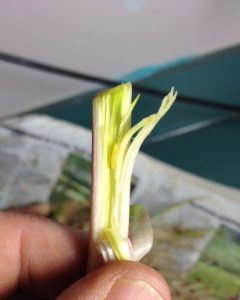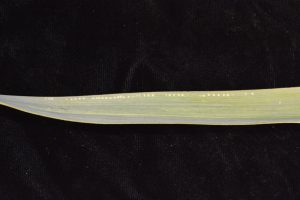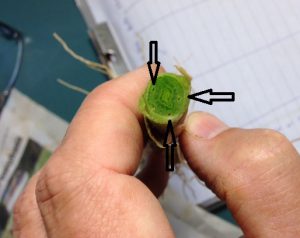Allium Leaf Miner
Allium leaf miner (ALM) adults (flies) and a very limited number of leaves with feeding signs were discovered Thursday at sites in Lawrenceville and Pennington (Mercer County). As yet, no adult activity or feeding has been found at the more northern sites in Milford, Pittstown and Asbury (Hunterdon County). Affected crops include chives, scallions, garlic and leeks. Indications are that we are 2-3 weeks behind last year’s development, but warmer weather through the coming weekend will surely result in more apparent infestations.
Floating row covers, kept on until the first flight ends will help minimize access to plants. Insecticide applications targeting adults may be helpful as well, although frequency of applications is uncertain. Spinosyn materials (Radiant, Entrust (OMRI approved)), pyrethroids (Mustang Maxx, Warrior), and pyrethrin materials (Pyganic (OMRI approved)), neonicotinoids (Scorpion, Venom) and the insect growth regulator Trigard are labeled for miner control.
Adult activity and observations of feeding will be reported on in the IPM Update as they occur. At this time, all growers should respond to the onset of the first adult generation. We will attempt to identify the end of the first flight so that growers know when the risk of infestation has abated.



